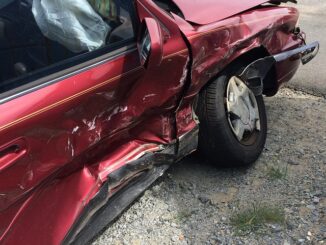
Car accidents are a stressful experience, but the financial burden becomes even more significant when dealing with an unidentified or uninsured driver. Luckily, Ontario’s Insurance Act mandates a specific type of coverage to protect you in such situations. This article delves into the intricacies of unidentified and uninsured coverage, empowering you with knowledge to navigate these complexities effectively.
Unidentified and Uninsured Coverage: A Safety Net
Unidentified and uninsured coverage, also known as UUI coverage, is a mandatory component of every auto insurance policy in Ontario. This coverage kicks in when you’re involved in an accident caused by a driver who:
- Is unidentified: You were unable to obtain the at-fault driver’s information, such as their name, license plate number, or insurance details. This can happen in hit-and-run accidents or situations where the other driver flees the scene.
- Is uninsured: The at-fault driver doesn’t have the minimum required auto insurance coverage in Ontario.
Benefits of Unidentified and Uninsured Coverage
UUI coverage provides financial protection for:
- Bodily Injury: Covers medical expenses you or your passengers incur due to the accident, regardless of who is at fault. This can include hospital stays, rehabilitation costs, and lost wages.
- Death Benefits: If the accident results in death, UUI coverage can provide financial support to your surviving family members.
- Damage to Your Vehicle (Optional): While not mandatory, some UUI coverage options can reimburse you for repairs to your vehicle if the at-fault driver is unidentified or uninsured.
Understanding Coverage Limits and Exclusions
UUI coverage has limitations and exclusions to be aware of:
- Coverage Limits: UUI coverage has a set limit, typically $200,000 per accident for bodily injury and death benefits. Ensure your coverage limit is sufficient for your needs.
- Deductible: A deductible may apply before your UUI coverage kicks in. Check your policy for the specific deductible amount.
- Exclusions: UUI coverage may not apply in certain situations, such as accidents involving intentional acts or while operating a vehicle under the influence of alcohol or drugs. Always refer to your specific policy for detailed exclusions.
Filing a Claim Under Unidentified and Uninsured Coverage
If you need to utilize UUI coverage, here are the key steps:
- Report the Accident: Regardless of whether the other driver is unidentified or uninsured, report the accident to the police immediately. This is crucial for filing a claim with your insurance company.
- Gather Information: Document the accident scene by taking pictures of the damage, skid marks, and any witnesses. Obtain any available information about the at-fault driver, even if it’s partial.
- Contact Your Insurance Company: As soon as possible, report the accident and your intention to file a UUI claim to your insurance company. They will guide you through their claims process and may require documentation such as the police report and accident scene photos.
Maximizing Your Protection: Additional Considerations
- Review Your Coverage: Regularly review your auto insurance policy to ensure your UUI coverage limits are appropriate for your needs.
- Optional Coverage: Consider adding optional UUI coverage for damage to your vehicle if it’s not already included in your policy.
- Seek Legal Advice: In complex cases involving significant injuries or damages, consulting a lawyer specializing in personal injury can be beneficial.
Resources
- Financial Services Commission of Ontario (FSCO): https://www.fsco.gov.on.ca/
- Ontario Ministry of Transportation: https://www.ontario.ca/page/ministry-transportation
- Insurance Bureau of Canada (IBC): https://www.ibc.ca/
Remember: Unidentified and uninsured coverage offers a valuable layer of protection in unforeseen situations. By understanding its benefits, limitations, and the claims process, you can ensure you’re adequately prepared to navigate the aftermath of an accident with an unidentified or uninsured driver. Don’t hesitate to consult your insurance company or a legal professional for further guidance specific to your situation.



